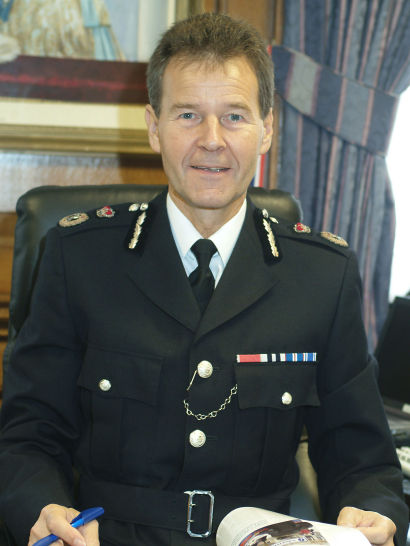CUTS in the number of attacks on rail staff and disorder offences at stations will be key targets in the new Strategic Plan released by the British Transport Police.
In another key challenge, officers will also aim to bring down the number of cable theft related offences by at least five per cent.
Meanwhile, the fight against terrorism goes on, with Chief Constable Ian Johnston warning that “the sustained terrorist threat to the railway infrastructure is a long-term issue for BTP”.
He said: “Nationally the police service will continue to play a vital part in the fight against terrorism, while policing of major events presents us with significant challenges with the world’s focus on London as it stages the Olympic and Paralympic games in 2012.”
On display at the Strategic Plan launch event, held at police headquarters in Camden, was a custody bus providing full mobile police station facilities and elaborate bomb detection equipment. Dogs gave displays of explosives detection, as carried out regularly throughout the rail network.
The event also featured in-formation stands covering neighbourhood, Olympics and football policing, frontline efficiency improvement, anti-social behaviour prevention and measures against cable theft.
The latest BTP plan, which covers 2008 to 2011, builds on recent rail crime reduction and aims to further drive down crime through more “visible and joined-up” use of an extended policing family while reducing the impact of incidents on train services.
The safety of large groups of people travelling on the network to and from major events throughout the country will be managed by working in partnership with the rail industry, the Home Office and civil police, and by making better use of received information and intelligence.
Frontline police officers and staff will have improved access to technology such as personal digital assistants, reducing the time they spend inputting data and allowing more time for visible patrolling.
To deliver its plan successfully, BTP says it needs to secure six per cent efficiency savings. Money saved will be re-invested to meet growing demand and to continue modernisation.
This challenging scenario will be monitored and managed through BTP’s Frontline First programme.
“We’ve survived reviews into our continuing existence and bombing campaigns, and we’re still here to build on the successes of the past three years,” said Ian Johnston.
BTP spells out 3-year strategy
1st July 2008


